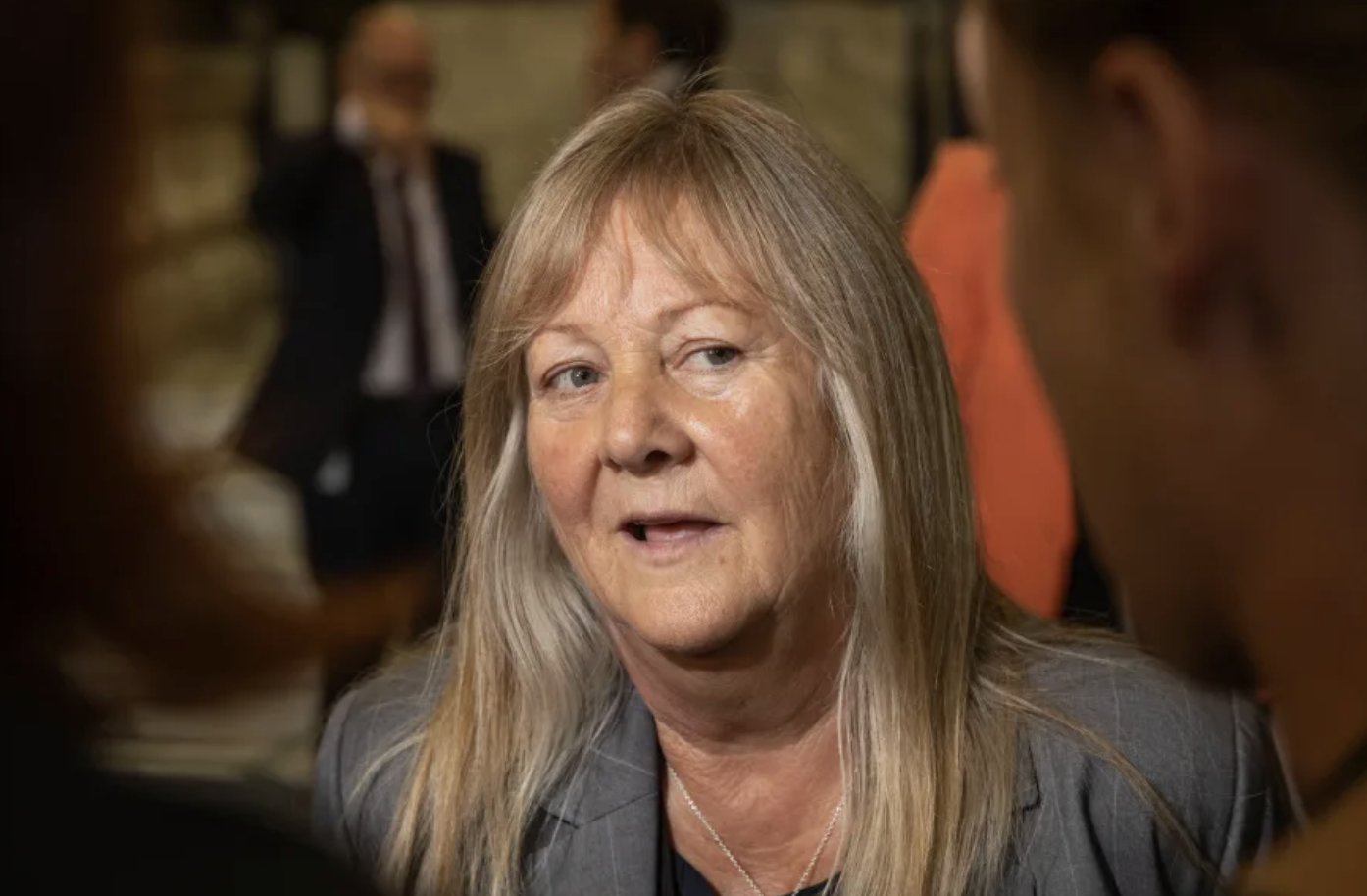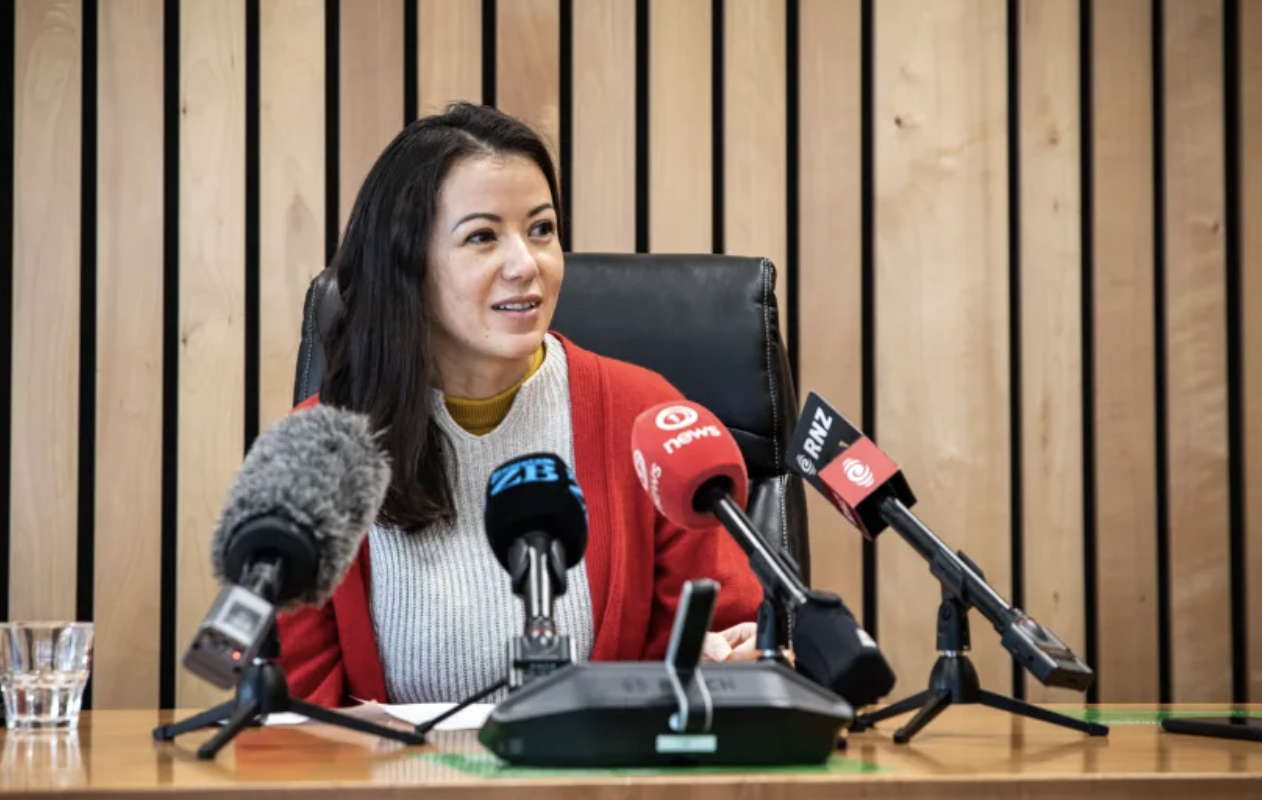Environment Minister accused of staying silent on fast-track projects
RNZ
06 October 2025, 8:18 PM
 Minister for Tertiary Education, Penny Simmonds proposed significantly increasing the maximum rate a university can increase fees by annually. Photo: RNZ / Angus Dreaver
Minister for Tertiary Education, Penny Simmonds proposed significantly increasing the maximum rate a university can increase fees by annually. Photo: RNZ / Angus DreaverThe Minister for the Environment Penny Simmonds is being accused of staying silent on fast-track projects which affect the environment.
The Fast-Track Approvals Act, which is intended to speed up development and infrastructure projects, requires the Environment Minister to be invited to comment on all referred projects, and all substantive applications.
National's Simmonds has commented on only eight of the 43 fast track projects she has been sent invites for.
Green MP Lan Pham believes Simmonds is neglecting her duties as the Minister for the Environment by choosing not to comment on all.
"Fast track bulldozes its way through any existing environmental protection that you would have considered a protection prior to the bill," she said.
The Fast-track Approvals Act is touted as a one-stop-shop, which allows projects to gain approval under many acts, such as the Wildlife and Conservation Act as well as the Resource Management Act. The process allows for limiting who is invited to provide information on applications, meaning community members and environmental NGOs could be sidelined.
"It's absolutely critical that the Minister for the Environment is using her voice to bring up environmental issues, to advocate for environmental concerns that are at risk and threatened by these fast track projects," said Pham.
"The fact that she isn't using her voice is absolutely disappointing. I think she's neglecting her duties as minister."
However, Simmonds said there is no expectation or obligation for her to comment on each application. She said expert panels assessing applications can set conditions related to environmental impacts.
She believed her priority as minister is to protect the environment, "so it can continue to underpin New Zealand's economic and social wellbeing".
Simmonds said she was proud of the government's "strong track record of improving environmental management", which she said delivered policies that allowed sustainable growth and development while safeguarding the environment.
Barrister Dr Mai Chen said the Minister for Infrastructure, National's Chris Bishop, is the decision maker under the Fast-Track Act and the Minister for the Environment is consulted.
In her view Simmonds should only comment when there was something additional, or new to say beyond what advice the Ministry for the Environment had already provided.
"You've got to see the Minister for the Environment's contribution in the light of that statutory schema," Chen said.
The equivalent of five full-time staff from the Ministry for the Environment spend 60 percent of their time dedicated to advising Simmonds on whether to respond to invitations to comment on fast track applications.

Lan Pham. PHOTO: RNZ / Nate McKinnon
Former Environment Minister Marian Hobbs said the public expect the minister to be the voice for the environment.
She said the minister needs to take a proactive approach and be satisfied she is getting the best information from staff at the Ministry for the Environment.
"It's a question of trust, is she pushing her ministry? Rather than the ministry giving you what you want to hear, which is the real danger, if you push back and say, what if? That's when I would get suspicious I wasn't always being given the full picture. I had no problem picking up the phone to a university, or to a specialist in the area to ask them."
When asked if she would have commented on more than eight of 43 applications, Hobbs' response was: "Hell yes."
"She is the only spokesperson for the environment in those decision making bodies and her voice should be heard, or otherwise it won't be heard at all."
Among the projects Simmonds chose not to provide comment on is a gold mining project in Waihi, which aims to tunnel under Coromandel conservation land. The area is home to the threatened Archey's frog.
Simmonds said she chose to not provide comments on OceanaGold's application because she was satisfied information provided by the mining company was comprehensive and completed by experts hired by the company. She said expert panels considering each fast-tracked application were best placed to address concerns with the application.

The Archey's frog does not have ears. PHOTO: Supplied / Amanda Haigh
The Department of Conservation (DOC) made a 43 page submission to OceanaGold's application which expressed concern about the potential for irreversible harm.
"DOC concludes that without significant improvements to mitigation measures, clearer performance standards and stronger legal protections for offset areas, the Project risks causing irreversible harm to high-value conservation areas and species. DOC recommends that the Panel adopt a precautionary approach and ensure that any approvals are subject to stringent, enforceable conditions," it said.
The project has also faced opposition from groups such as Coromandel Watchdog of Hauraki, who are concerned about the impact on endangered frogs and fresh water quality in the public conservation land. This group was invited to comment on the application, and engaged with a range of experts.
Spokesperson Catherine Delahuntey, a former Green MP, was disappointed the Minister for the Environment chose not to comment.
"This is one of the supposed checks and balances isn't it? That the minister is engaged. Well obviously they're not."








